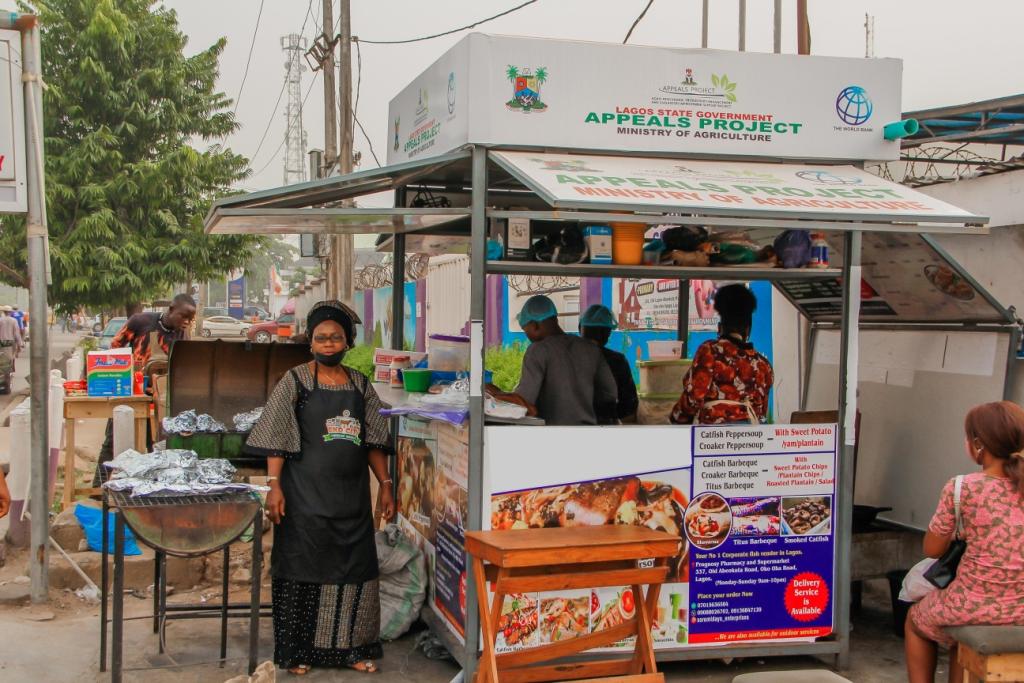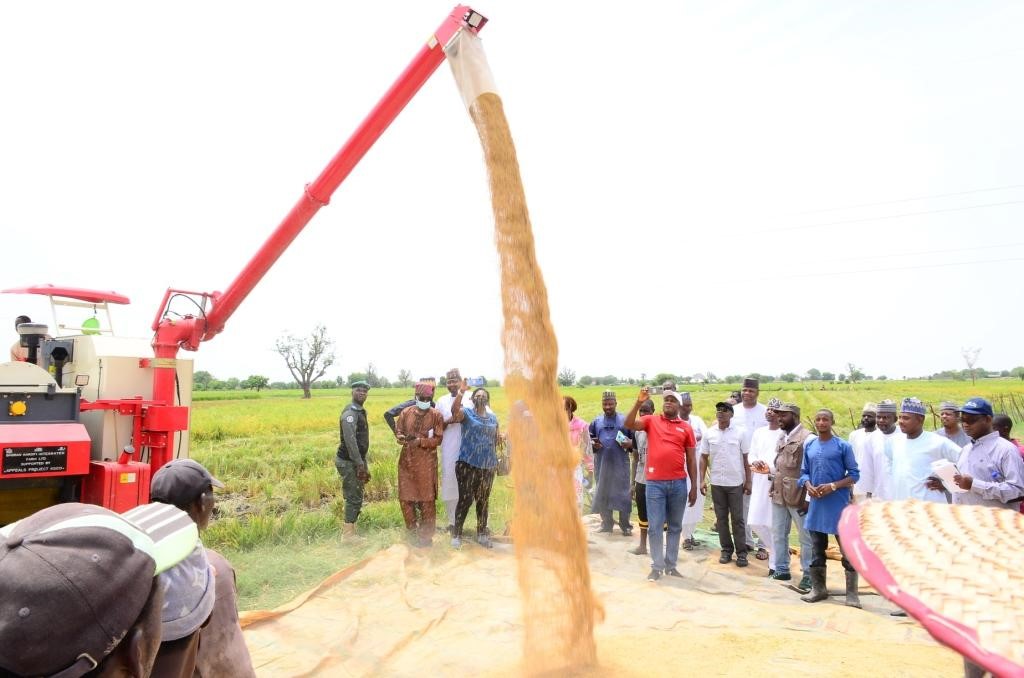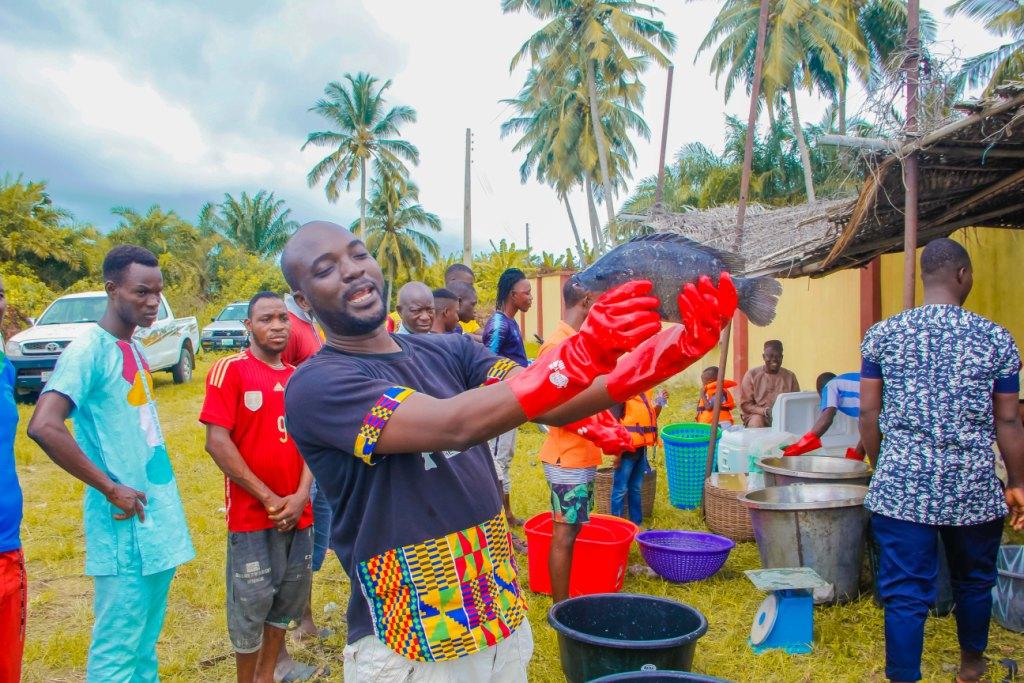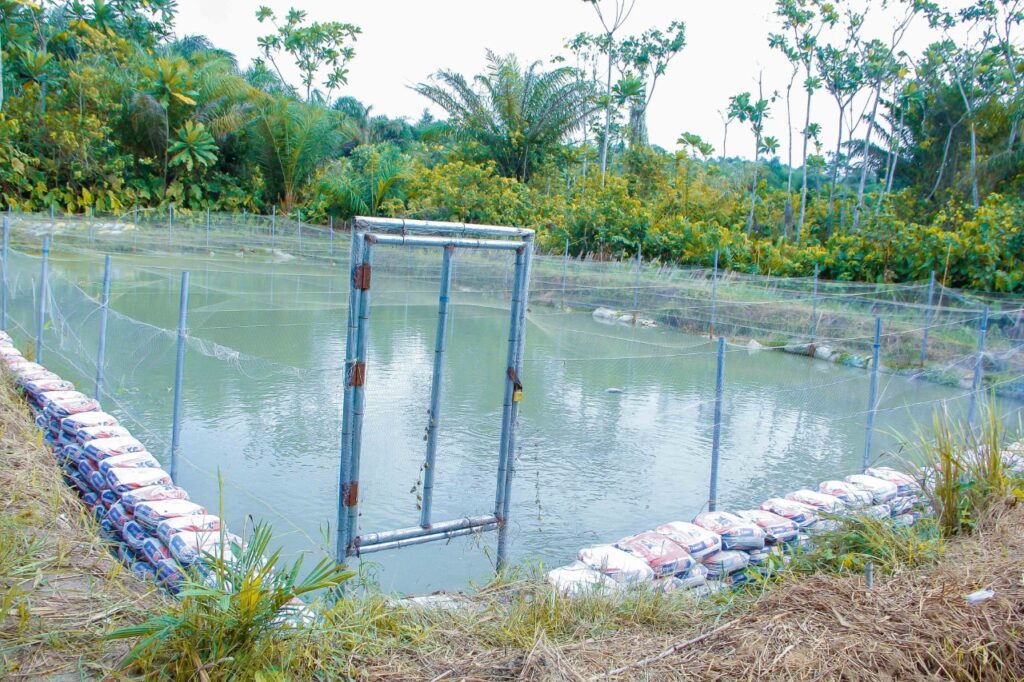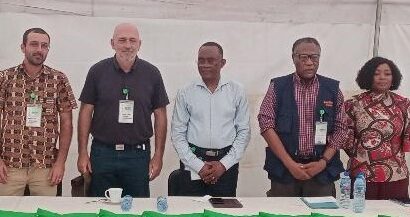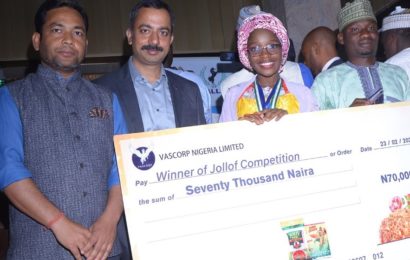By Moses Ebosele, ebosele@hotmail.com —
A cross-section of farmers in Kogi State has expressed satisfaction with the ongoing implementation of the World Bank Agro-Processing, Productivity Enhancement and Livelihood Improvement Support (APPEALS) in the State.
According to Cluster Chairman of Oku Obanyi in Hihima Okehi Local Government Area, John Omeiza Sariki, APPEALS Project started supporting farmers in the area in 2020.
He explained that the cluster has two groups that cultivated 43 hectares of cassava farm with the support of APPEALS project.
Explaining further, Sariki said: “Before APPEALS came, we were cultivating about 4 to 5 hectares, and we were using local farm implements.
“APPEALS helped us with ploughing, harrowing and ridges for the 43 hectares and they supported us with farm inputs. They facilitated the provision of herbicides, fertilizers and provided us tricycle, cutlass, wheelbarrow, knapsack sprayer and other things.
“They trained us on how to apply fertilizer, how to plant cassava stem and the management of farm. We are expecting from 25 tons to 30 tons per hectare before we were getting just 10 tons per hectare. Before the intervention from APPEAL, we were getting about N300,000 per hectare, but currently, the price of cassava has increased to about N50,000 per ton”
Another cassava farmer, Alao Ojo said APPEALS has taken them through many pieces of training on the security of our farm, keeping record, farm maintenance.
He said the training helped them a lot because their eyes are open to so many things they didn’t know before. During the training, we were taught how to do spacing when planting, before we just plant anyhow, but now we are able to know the maximum space to give during planting, how to apply fertilizer, how to apply herbicides”, he said.
A woman cassava farmer, Aminetu Shuaibu said she has been in cassava farming for over 5 years; she appreciated the Federal Government and the Kogi government for bringing APPEALS to them. Shuaibu said her cassava farm is now bigger than what it used to be, and she is confident that the harvest would also be bigger than her previous harvest.
Cashew
In Ochaja Community, Dekina Local government in Kogi State, farmers abandoned their cashew farms because of lack of support. The farmers in the community said bushes overgrow their cashew farms because they don’t have the money and energy to continue farming.
Chief Yahaya Ibrahim, the traditional ruler of the community who is also a cashew farmer said he has 12 hectares of cashew, but I ignored it for the past 10 years but with the coming of APPEALS project in the state, they have been able to reignite my interest in farming again.
He said between 2019 and 2020, APPEALS has been organising workshops and seminars for them on the importance of cashew, the agronomic aspect, packaging and others. Ibrahim said last year, Kogi APPEALS facilitated the distribution of cashew farming implements that they can use in their farms, and like cutlass, slashers. “The reason why I ignored my farm is because the work became tedious, and there were no materials to use, no financial support, but when we were given the slashers, a place that 5 labourers can cover in a day, just with one litre of fuel, you will clear the place in a day.
“After clearing the farm, APPEALS also supported us with herbicides and insecticide, they gave us manual sprayers and the motor-ride sprayer to use on our farm”, he noted. He said before now, the middlemen buy their products at ridiculous prices, but APPEALS connected them with off-takers who they sell directly to on a good price. “Go to our community now, you will see people erecting modern houses as a result of the Kogi APPEALS intervention”,
He lamented that the time frame given APPEALS in Nigeria is too short. “If APPEALS continue in Kogi till the next 10 years, there would be massive poverty alleviation in the state.
Another cashew farmer, and Chairman of Ochaja Multi-Purpose Cooperative, Noah Yusufu said he was discouraged about farming because he doesn’t have the money and the energy but since APPEALS came in, he returned to the farm after they were trained. “Before APPEALS came in, I always encounter Bush burning in my farm, but after trainings by APPEALS, I now harvest double of what I used to harvest in the past. “Formally, I rarely harvest 15 bags from my 7 hectares farm, but after training and provision of farm inputs by APPEALS, I got about 45 bags from the same farm and each bag costs about N40,000. “APPEALS has changed our lives, some of us are erecting houses, I will buy my own car and build my house very soon.“Whenever we harvest, we invite the off-takers who come to our farms or houses and buy up everything, but previously, those middlemen decide the prices of our products without our knowledge”.
The National Project Coordinator, Alhaji Mohammed Sani Jobdi, recently pledged the commitment of the scheme to collaborate with relevant institutions to ensure the smooth and successful implementation of the project in Nigeria.
Speaking on Monday at a workshop for Journalists in Nasarawa State, Jobdi said Capacity building and support to collaborating institutions is a key component of the APPEALS Project, “with the broad aim of building the capacities of collaborating partners and stakeholders that are participating in the implementation of the project, so as to promote knowledge sharing and facilitate the exchanges of experiences“.
“Our strategic communication approach is to consolidate our relationship with the media, to utilise available communication channels to facilitate the realisation of the project development objective, which is to enhance the agricultural productivity of small and medium-scale farmers and to improve value addition along the priority value chains in the participating states.”
Meanwhile, a total of 39,209 have benefited directly from the projects being implemented across six states in Nigeria.
Project Operations Manager, Dr Salisu Garba explained that the project indirectly benefited 196,045 in a total of 87 Business Alliances and out-grower schemes established across the six participating states of Cross River – 19, Enugu-5, Kaduna–16, Kano-25, Kogi-4, and Lagos -18.
While presenting the project’s overview, Garba said the project has empowered 8,078 youth and women with business, technical and life skills training, support to business planning, facilitation of business name registration with Corporate Affairs Commission (CAC), start-up grant to establish a commercially viable business.
He said five percent of the total number of Women and Youth Empowerment Programme (WYEP) beneficiaries of 10,000 representing at least 500 from the International Development Association (IDA) funding have been set aside for People With Disabilities and Special Need (PWDSN), adding that they are currently being trained and empowered.
He said “the WYEP beneficiaries are open to choosing any other value chains, but within the selected priority value chains for the project. This flexibility has enabled the youth to select commodities of high sustainability with quick returns on investment and high potential for foreign exchange generation and wealth creation.
The Project Operations Manager said a lot of achievements have been recorded in Kano, Kaduna and Cross River States where a total of about 5,052 farmers have either been linked to market outlets.
His words: “The project outcome indicator for productivity increase was 35 percent for each value chain. And as of the mid-term review (February 2021), all the value chains have surpassed the 35 percent targeted yield increase from baseline figures. Across all the value chains, there was a 48.9 percent increase in average yield. This is above the average of 35 percent targeted at the onset of the project.
“Increase in processed output of the priority value chains by project beneficiaries a minimum of 40 percent increase in processed products was expected for all the value chains. As at MTR, data from processed cassava, rice, aquaculture, and wheat showed an average increase of 47.7 percent. This is higher than the expected increase in processed output of value chains of 40 percent.”
Garba said the APPEALS Project has also provided 25 agribusiness clusters out of the targeted 50 of the project with infrastructure such as borehole, box-culvert and tube wells.


